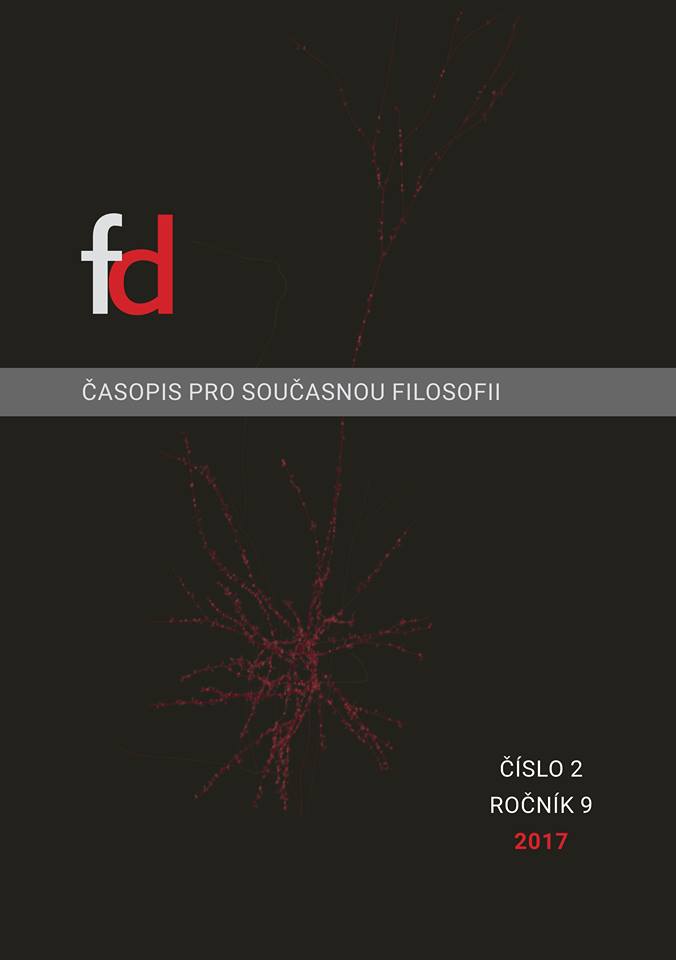Précis of What It’s Like, or What It’s About? The Place of Consciousness in the Material World
DOI:
https://doi.org/10.26806/fd.v9i2.261Abstract
The paper provides a summary of my recent Czech-language book, What It’s Like, or What It’s About? The Place of Consciousness in the Material World (2017). As suggested by the subtitle, the topic of the book is philosophy of consciousness. In the contemporary literature, most participants have in mind the so-called phenomenal characters, and the main issue debated between dualists and materialists is whether these characters are material properties. Even the Russellian monists, who otherwise present themselves as an alternative to both dualism and materialism, accept the concept of phenomenal character. I express doubts about this concept in chapter six of my book; accordingly, I allot most space in the paper to the material from this chapter. Despite the majority opinion, I believe that no agreement has in fact been reached concerning the content of this concept. Similarly to Daniel Dennett, I recommend trying to develop a philosophy of
consciousness without the concept of phenomenal character. As is well known, Dennett – to some extent similarly to the aforementioned materialists – proposes a reduction of consciousness in terms of representation. However, I wound up rather more skeptical than Dennett, since following up on my previous book, The Metaphysics of Anti-Individualism (2008), I claim that a naturalistic theory of representation is incoherent.
Downloads
Published
Issue
Section
License
Authors who publish in this journal agree that:
1. Authors retain copyright and guarantee the journal the right of first publishing. All published articles are licensed under the Creative Commons Attribution license, which allows others to share this work under condition that its author and first publishing in this journal was acknowledged.
2. Authors may enter into other agreements for non-exclusive dissemination of work in the version in which it was published in the journal (for example, publishing it in a book), but they have to acknowledge its first publication in this journal.
3. Authors are allowed and encouraged to make their work available online (for example, on their websites) as such a practice may lead to productive exchanges of views as well as earlier and higher citations of published work (See The effect of open access).


